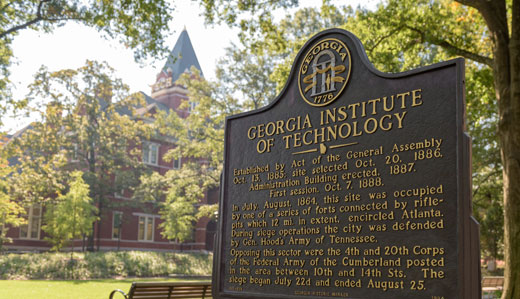The 9th ATLC, short for Atlanta Conference on Science and Innovation Policy, will take place at the Georgia Institute of Technology next May, 24th-26th, and we are ready for it. In collaboration with colleagues from other institutions, our team mates Nicolás Robinson-García and Daniel Torres-Salinas will be giving two presentations:
«Informetric methods for studying the diversity of the scientific workforce: Towards a state-of-the-art», by Nicolás Robinson-García, Carmen Corona-Sobrino, Zaida Chinchilla-Rodríguez, Daniel Torres-Salinas and Rodrigo Costas.
Abstract: Background and rationale Evaluative processes struggle with the notion of diversity of a scientific workforce (Walsh et al., 2019). Despite overwhelming evidence on the need for diverse teams in terms of division of labor (Robinson-Garcia et al., 2020), ethnic mix (Freeman & Huang, 2015) or gender (Díaz-García et al., 2013; Maddi & Gingras, 2021) among others, bibliometric methods have traditionally been focused on the development of impact and productivity indicators. Recently, the development of machine learning algorithms, new data sources and strong calls for action favoring an open and diverse scientific ecosystem, have given room to a stream of studies focused on studying different aspects of career trajectories, diversity of profiles or biases in science. In this paper we attempt at reviewing recent advances in the development of novel informetric approaches and methods to study diversity in science. Specifically, we focus on those related to the scientific workforce. This focus on diversity of the scientific workforce differentiates this work from other reviews focused on individual level indicators (Gauffriau, 2020; Wildgaard et al., 2014), as we deliberately ignore productivity or impact indicators to focus on methods and approaches aimed at characterizing individuals and the context in which they work. [Click here to go on reading].
«Social Innovation for Resilience in Global Collaborative Research» by Julia Melkers, Eric Welch, Richard Woolley, Nicolas Robinson-Garcia and Aleksandra Klein.
Abstract: The pandemic has caused massive disruptions to the research enterprise (George, Lakhani, & Puranam, 2020), and international collaboration is further compromised by restrictions on global travel and related researcher/trainee mobility amidst uncertainty about when restrictions may be eased. The pandemic acts as an exogenous environmental jolt to the conduct of international science, which is both difficult to initiate and fragile in normal times due to geographic, cultural and other factors unique to collaboration across distance (Cummings & Kiesler, 2005). Scientists have not been passive in their responses, and in fact some studies have indirectly shown that the pandemic has had some positive outcomes for some scientists and teams (Myers et al., 2020). Certainly, teams adapt to restrictions, meeting virtually and shifting research activities. Yet, advances cannot only be explained by the advantages of expanded and improved technological solutions. In this exploratory work, we examine the relatively ignored topic of global social innovation in science capacity in the face of the COVID-19 pandemic. Ultimately, scientific collaboration is a human enterprise, and how team members engage, support one another, have opportunities for, and cultivate open, honest and often risky vetting of ideas and solutions, matters for their success. [Click here to go on reading].
For more information about the Conference, you can visit the ATLC website and also take a look at the full program.
